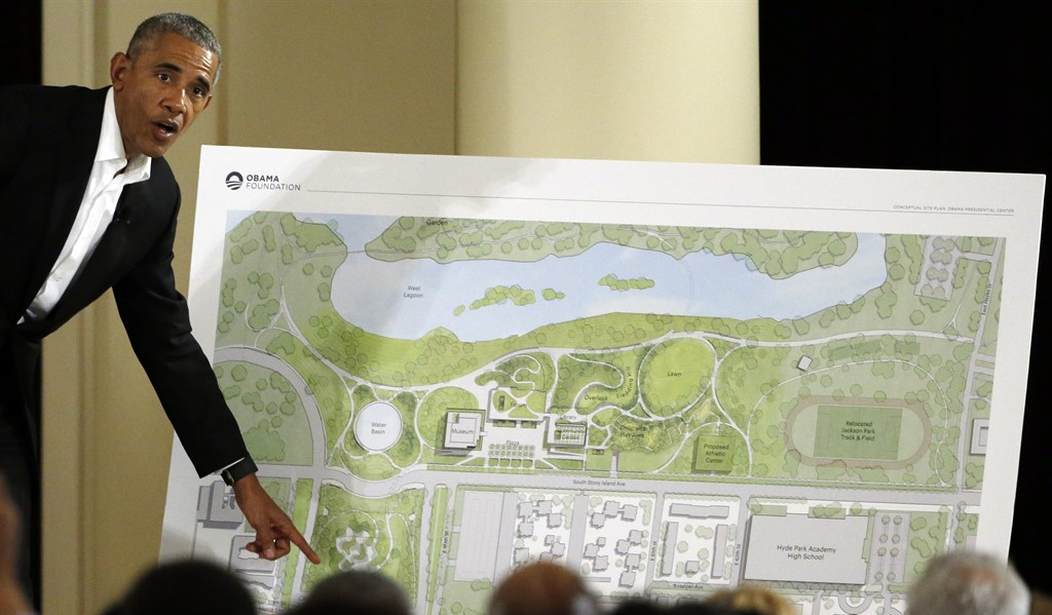Unlike traditional presidential libraries, the Obama Presidential Center will not actually have library materials. That is—it will not house former President Obama’s manuscripts, documents, letters, and gifts from his tenure in office—items presidential centers around the country all have.
Instead, it will include space for outdoor functions and picnics, a basketball court, recording studio, sledding hill, children’s play garden, and more.
As for the actual library documents, the center will rely online archives for Obama’s presidential materials as a way to avoid meeting federal standards in construction, raising money for an endowment, and paying the National Archives and Records Administration to run the facility.
“This is going to be completely different,” said Foundation CEO David Simas, reports The Chicago Tribune. “What the president and first lady said … is they simply did not want a museum that served as a mausoleum, as a way to look back.”
Traditionally, Presidential Libraries are places where historians, academics and college students travel to dig through paperwork and hold the first drafts of speeches, letters and legislation in their hands. But without those papers on site, some have begun to ask whether the Obama Center can even attract researchers to the University of Chicago, Chicago State University or the University of Illinois. What will it mean to have those documents online rather than in a physical form for inspection? And with digital technology constantly changing, how will the National Archives and Records Administration ensure the documents will be placed online in a timely manner and accessible over time? […]
Currently, Obama’s papers are stored in a private facility — a handsome and sprawling, bright white brick building on a commercial strip on West Golf Road in suburban Hoffman Estates. Officials initially thought the papers would be kept in Chicago. But after they spent $300,000 to ship Obama’s documents to the Chicago region and about $223,000 a month to store and provide security for tens of millions of textual records, artifacts and audio visual materials here, they decided to ship them back to Washington once a decision is made on where to keep them permanently, a spokeswoman with the National Archives and Records Administration said.
The classified documents will be housed in an existing facility in Washington, D.C., the spokeswoman said. The non-classified papers will likely be placed in an existing NARA facility in a Washington suburb. (Chicago Tribune)
Recommended
“Here’s how it will be attractive: through the forums, workshops and programs they conduct,” James Rutherford, the dean of the William J. Clinton School of Public Service, told the Chicago Tribune. “They can host conferences with administration officials, discussions on how Obama approached health care, how he developed the DACA executive order. That’s how the center will become a research institution.”
Proponents argue archiving everything online will make the library more accessible to everyone across the country.
Adrena Ifill, the managing partner of Washington, D.C.-based DoubleBack Global Group, a cultural heritage firm, said the move online “is in line with his legacy.”
“Obama has been a game-changer from the beginning. If you see the presidential libraries of current living presidents, you’ll see how those centers have evolved,” she said, reports the Chicago Tribune. “Going digital is a natural progression of lessons learned from those entities.”
The Obama Presidential Center still has roughly four years before doors open.
























Join the conversation as a VIP Member